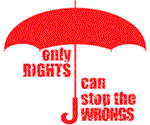Today the Women’s Equality Party declared support for the “Swedish model” of criminalising people
who pay for sex.
It is unclear if the Women’s Equality Party is unaware of the growing body of evidence that the “Swedish model” endangers people who sell sex and impedes effective strategies against HIV and other public health risks or sees these as acceptable collateral damage in their crusade to “end demand for the sex trade”.
The Women’s Equality Party say they wish to see “safe routes out of the sex trade for all those currently selling sex” (emphasis ours) indicating they support enforced exit programmes and do not view people who sell sex as entitled to make our own decisions.
There are hundreds of sex worker led organisations worldwide and half a dozen in the UK that oppose criminalisation of clients and forced exiting. The Women’s Equality Party show no knowledge of or concern for the views of we who would be most harmed by their choice to promote criminalisation of our consent, we who see the day to day reality of the sex industry.
The IUSW knows of no attempt by the Women’s Equality Party to consult with any UK organisations led by current sex workers, nor with services that provide day to day support to people in the sex industry or bodies such as the UKNSWP and National Ugly Mugs that promote evidence based policy and actively tackle violence against sex workers.
Since paying for sex was made illegal, sex workers in Sweden report greater violence, rape and harassment by the police, being made homeless by threats to prosecute landlords for pimping if they accept rent money from by tenants who sell sex, discrimination and expressions of contempt by “support” services unless they present themselves as victims seeking rescue. Criminalisation of our consent has not even been successful on its own terms (seeking to eradicate commercial sex) with Swedish police recording substantial increases in the number of clients, massage parlours and estimations of trafficking. The Swedish government’s official evaluation could make no stronger statement than “… Internet prostitution has increased in Sweden, Denmark and Norway … there is nothing to indicate that a greater increase in prostitution over the Internet has occurred in Sweden… No overall increase in prostitution.”
In contrast, the New Zealand model of complete decriminalisation – campaigned for by people in the sex industry as most effective in tackling violence, exploitation, health risks, discrimination and abuse – has extensive statistical data, both immediately before decriminalisation and since, that shows no increase in the number of people selling sex or victims of trafficking. Since complete decriminalisation, sex workers in New Zealand have been protected by the courts against both sexual harassment by managers and condom removal by clients.
More dangerous than a choice to ignore the evidence on what works to challenge violence, exploitation and discrimination is the view of the Women’s Equality Party that equal rights do not apply to all women.
A fundamental principle of feminism is that a woman has the right to make decisions for herself – these decisions have always been most fiercely contested when women decide about our sexual and reproductive rights. Criminalising the consent of women who sell sex is simply an inversion of the old patriarchal trope “you can’t rape a whore”. But for all women, it counts when we say no, and it counts when we say yes. When any woman’s right to consent to sex is denied, all women are endangered.
Catherine Stephens of the IUSW comments “people in the sex industry, whether there by choice, circumstance or coercion, are entitled to equal human rights, non-discriminatory treatment and the full protection of the law as other citizens. The Women’s Equality Party has chosen to ignore, exclude and endanger women who sell sex. No woman is made safer by legislation that treats her consent to sex as unworthy of respect. Our bodies, our lives, our right to decide.”
Notes:
The IUSW is an unfunded organisation of people currently working in the sex industry, together with allies who respect our equal entitlement to human rights and freedom from discrimination and supporters of policy based on evidence and in reality. All work is by volunteers. For more information email media.contact@iusw.org or call 07772 638748.
References:
http://www.womensequality.org.uk/end_trafficking_and_sexual_exploitation
http://www.nswp.org/members
http://www.sexworkeurope.org/campaigns/hands-our-clients-advocacy-and-activism-tool-kit-against-criminalisation-clients
The Swedish Sex Purchase Act: Claimed Success and Documented Effect By Susanne Dodillet and
Petra Östergren
Jay Levy, University of Cambridge Impacts of the Swedish Criminalisation of the Purchase of Sex on Service Provision for Sex Workers Presented at the Correlation Final Conference, Ljubljana, 14th December 2011
http://www.thelocal.se/29154/20100921/
http://www.thelocal.se/20111024/36918
http://www.thelocal.se/28034/20100727/
official Swedish government Evaluation English Summary Jul 2010
Report of the Prostitution Law Review Committee on the Operation of the Prostitution Reform Act
2003 May 2008
The Impact of the Prostitution Reform Act on the Health and Safety Practices of Sex Workers
http://www.hcamag.com/hr-news/sex-worker-sues-for-sexual-harassmentand-wins-185297.aspx
http://news.bbc.co.uk/1/hi/world/asia-pacific/4685513.stm


